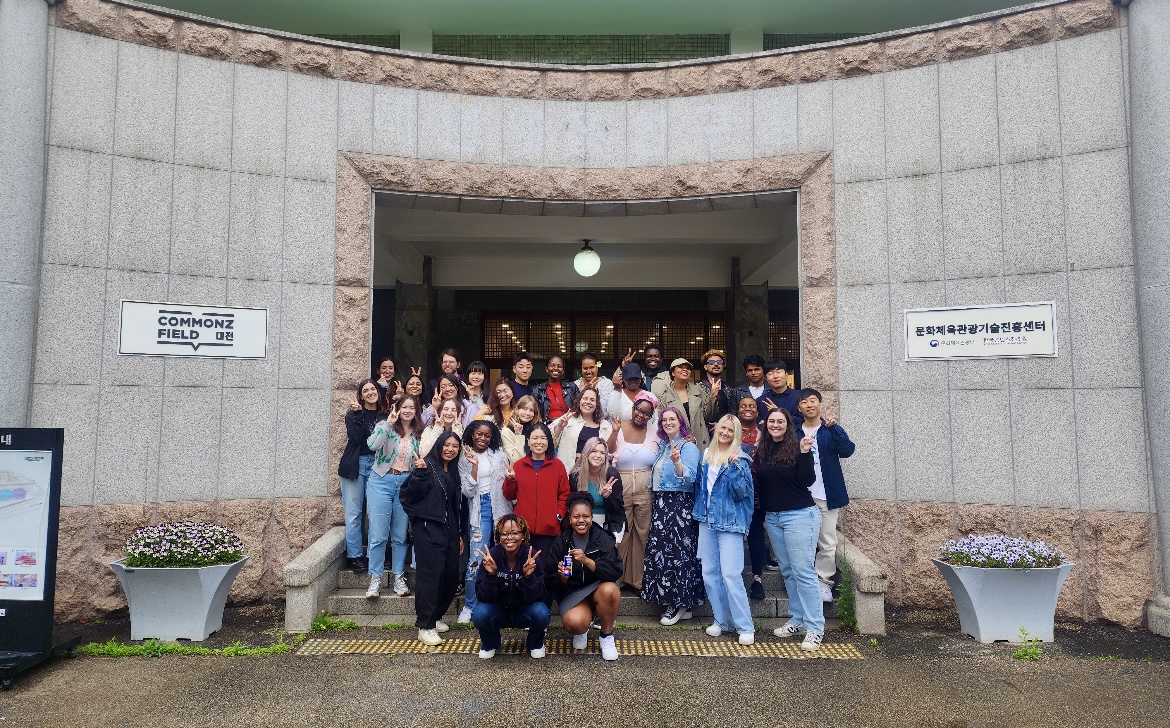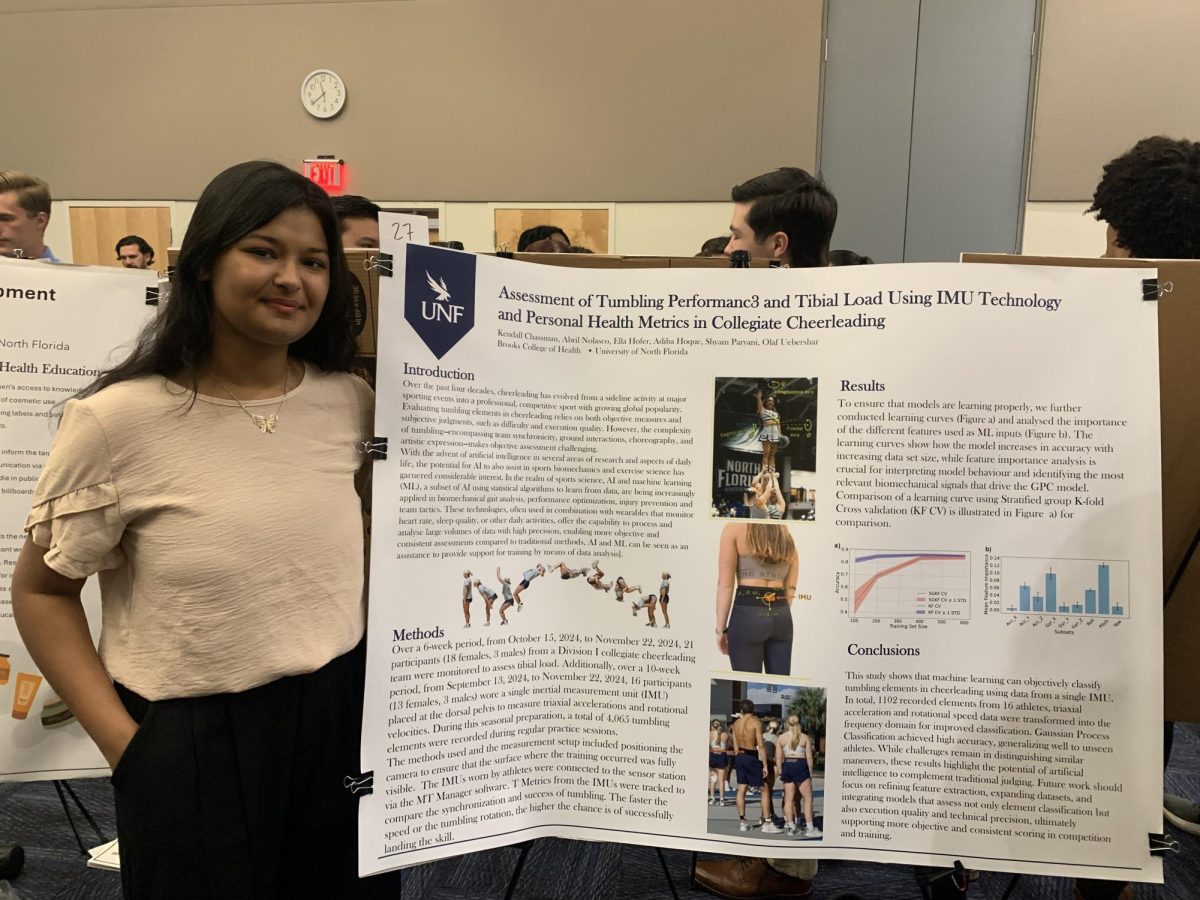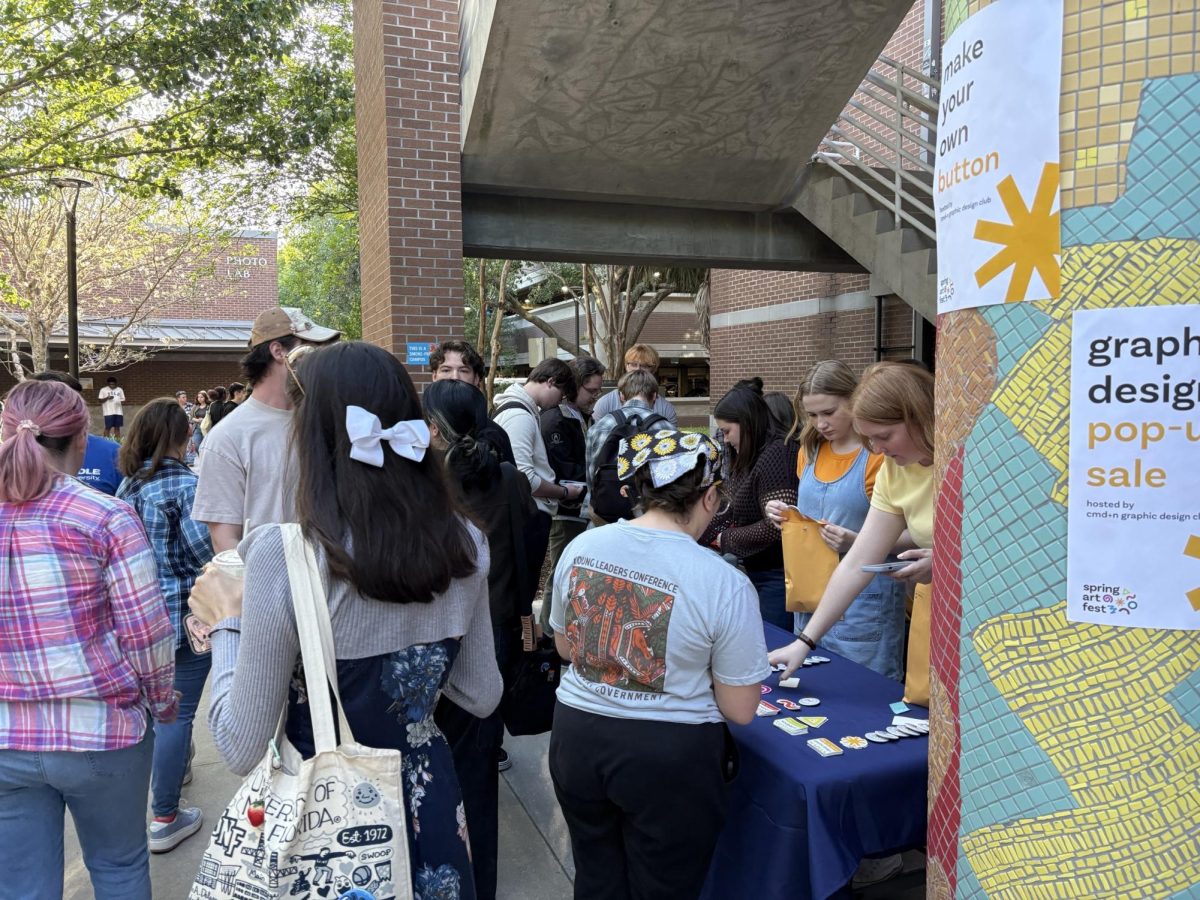Video by Bernadyn Nettles and Brittany Moore
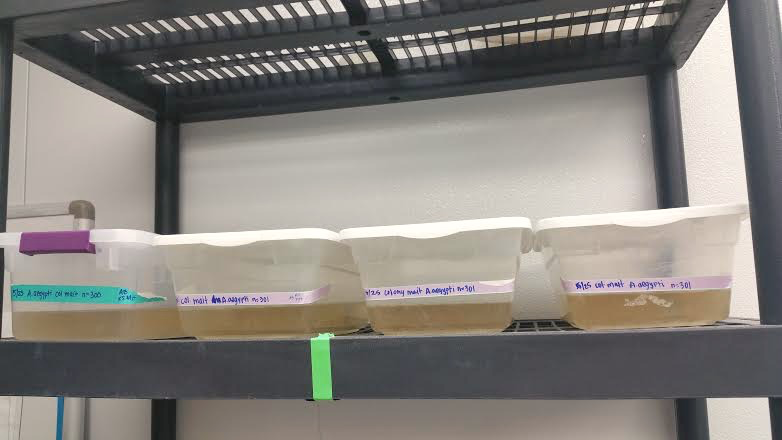
The summer heat waves bring in pesky mosquito bites, but a UNF professor and students are biting back with a solution to help reduce the risks of mosquito-borne viruses. Professor of Biology Dr. Doria Bowers, and three students, are working on a mosquito inhibitor that will combat mosquito-borne illnesses, like Zika. The mixture, which was patented in 2010 through UNF, slows down the growth of mosquitoes. It is not intended to kill all of them, but to be used as mosquito control to lower their population.

Bowers has been working with mosquito-borne viruses since 1986. Currently, she has been working with a virus that infects mosquitoes: “It’s a model system for the big bad boys like now, Zika,” she said.
The research has gained wide support and attention from the Centers for Disease Control and Prevention (CDC) and local military including Naval Air Station Jacksonville (NAS Jax).
To conduct their research, Bowers and students colonize and raise the mosquitoes in the insectary and collect their eggs.
Mosquitoes are then placed in the mixture to stop them from reaching the pupae stage, preventing them from growing into adults to lay eggs and carry viruses.
Bowers and the students go through a weekly routine to conduct their research. “We have a huge hatching day, which can last for 4-5 hours,” said Bowers. “Then, we distribute the eggs and we check on them twice every day. The students do most of the work. They’ll check them in the morning and in the evening to see how things are progressing.”
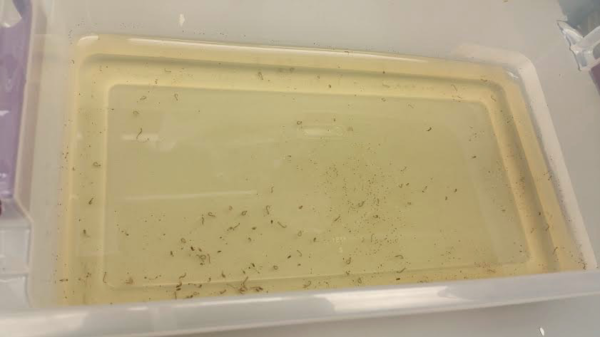
Bowers hopes the inhibitor might be one more opportunity to control them.
“My original goals were to develop this into something that homeowners can use because I feel strongly that if homeowners take responsibly for personal care like using their DEET, dumping over their birdbaths and making sure their babies and older people have DEET on them,” said Bowers. “Then, I think that’s one more item in the arsenal of mosquito control.”
Bowers’ project hasn’t been completely issue-free however.
“The greatest hurdle for scientists is funding,” said Bowers. “I’m working to submit an NIH [National Institute of Health] grant from sponsored research to bring money into the lab to pay for students, stipends, gas, lunch and supplies and equipment for the project.”
The other hurdle is the heat. The insectary is extremely hot as is the greenhouse, which is their semi-field environment located on the fourth floor of the biology building. Heat is also expected to be an issue at NAS Jax, where an entomologist will monitor the study. They have in-ground concrete larvae pools that are able to hold 50 or more liters of the solution.

“We will do this. That’s what mosquitoes like is the heat,” said Bowers, determined to overcome the challenges. “As far as my assets, we at UNF have the greatest assets and those are the students who are eager to conduct research. That has always been my biggest asset here.”
Kelsey Sutphin, a senior biology student working on this project, also maintains Bowers’ sense of determination.
“I hope this solution can eventually become available to homeowners,” said Sutphin. “For me, I hope my work with this project can be a foundation as an undergraduate student. When I return as a graduate student to UNF, it would be really nice to see the continuation of the project.”
Bowers doesn’t have an expected date of project completion, as research remains continuos.
“We take baby steps and baby bites and we just progress through,” said Bowers.
According to Bowers, students can lower their risks of mosquito bites and the viruses they potentially carry by wearing an Environmental Protection Agency-registered insect repellent containing the active ingredient DEET.
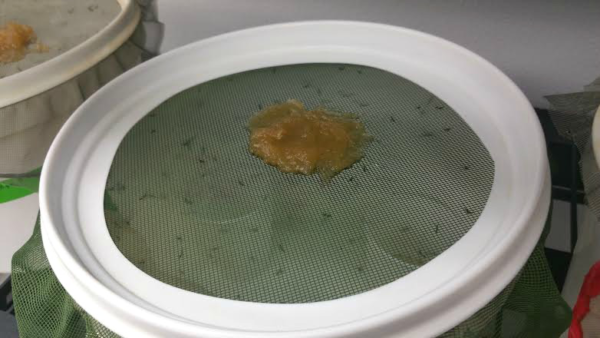
—
For more information or news tips, or if you see an error in this story or have any compliments or concerns, contact editor@unfspinnaker.com.






